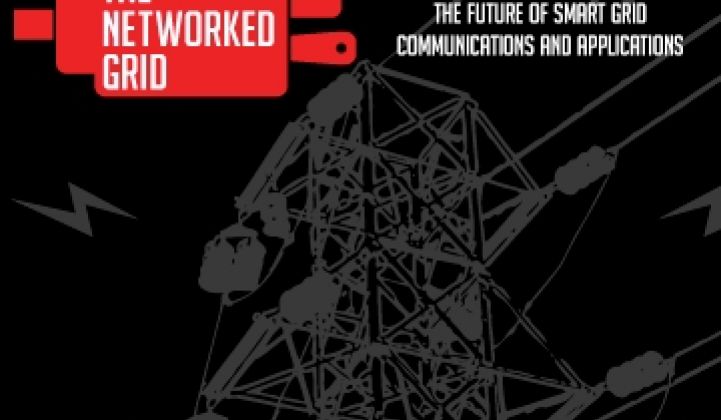You already have the infrastructure for smart grid services in your home.
It's called a broadband gateway, says John Steinberg, CEO of EcoFactor.
The Milbrae, Calif.-based startup has begun to tout a residential energy management system that effectively bypasses the expensive and largely un-built smart meter networks many utilities plan to build. (It's a big topic of conversation that will be covered at tomorrow's The Networked Grid conference taking place at PG&E headquarters.)
In EcoFactor's system, a wireless thermostat sends data to a home DSL or cable box. A continual exchange of data between the home gateway and EcoFactor's servers then allows EcoFactor's servers to modulate the temperature up or down according to parameters set by the consumer and data gathered about a consumer's usage and behavior.
The centralized servers also analyze local weather patterns in order to forecast or devise a cooling/heating strategy for the next 24 hours. The weather data, along with the historical data about your home, effectively forms a thermal profile of your home that allows the company to fine-tune power consumption and reduction.
"It's like cruise control for the air conditioner," said Steinberg. "We are not taking away any form of control. We are doing what you would do if you were paying attention."
Oncor, the Texas utility, has tested the system in a limited number of homes and contracted with EcoFactor to install the system into close to 2,000 homes. That will give Oncor approximately 3 megawatts worth of demand response capacity it can turn to on emergency days.
Overall, the system can cut heating and air conditioning power by 20 percent to 30 percent, Steinberg claims. Home heating and air conditioning systems in total consume about 7.8 percent of the total energy in the U.S. (HVAC gobbles up 39 percent of household energy, according to the 2008 Buildings Energy Data Book from the DOE and 40 percent of all U.S. energy goes into building operations with half of that going into homes, so 39 x 0.4 x 0.5.)
The company in a lot of ways seems like an amalgamation of technologies and strategies from other companies. Like Hydropoint Data Systems, EcoFactor exploits satellite weather data to improve how resources are managed. (Hydropoint turns up and down sprinklers with the weather.) Like Comverge and Advanced Telemetry, it provides demand response services for utilities and energy management for homes. The pre-cooling techniques also conceptually perform a similar function as the ice air conditioners, which make ice at night to cool buildings during peak hours.
And, like GainSpan, Cisco Systems, AT&T, Verizon and likely Comcast, it wants to run the systems on existing, standards-based platforms that can be installed before smart grid rollouts. EcoFactor, in fact, will likely resell its services through communications carriers trying to get into energy management.
The system also pretty much works most of the networked thermostat protocols: ZigBee, WiFi, etc. The thermostat's radio only has to reach the broadband box. Still, it doesn't do everything. Unlike Comverge, EcoFactor doesn't link into pool equipment, a big energy gobbler, or lights like Adura Technologies. It will later, but doesn't yet, offer services to businesses like Cypress Envirosystems.
EcoFactor's service can take cues from both deliberate settings from consumers as well as behavioral patterns established by the consumer. If you've set the thermostat to save money, the servers ease back on the air conditioner. If you habitually turned down the thermostat so that the house stays at 68 degrees at 6:00 p.m., EcoFactor will pre-cool your house so that you will need less power during the peak power/peak heat hours in the late afternoon.
Introducing weather data into the mix gives it an edge over traditional demand response systems, added Scott Hublou, senior vice president of products. In traditional demand response systems-which turn down air conditioners at the behest of utilities to save power-the AC is off two-thirds of the time and on one-third of the time. In the Oncor trials, EcoFactor managed to shut off AC units completely during peak hours though pre-cooling.
Because EcoFactor will sell through partners, it did not reveal pricing. Potentially, some companies initially may give away the service for free as a customer retention spiff.
Interact with smart grid industry visionaries from North American utilities, innovative hardware and software vendors and leading industry consortiums at The Networked Grid on November 4 in San Francisco.




